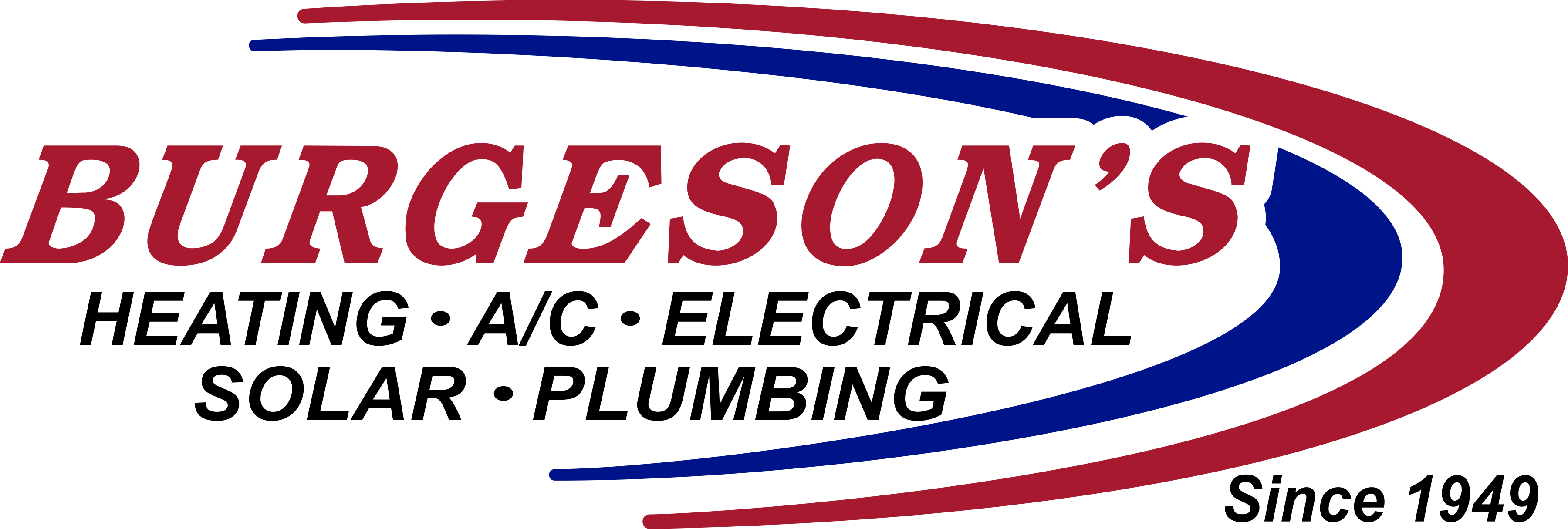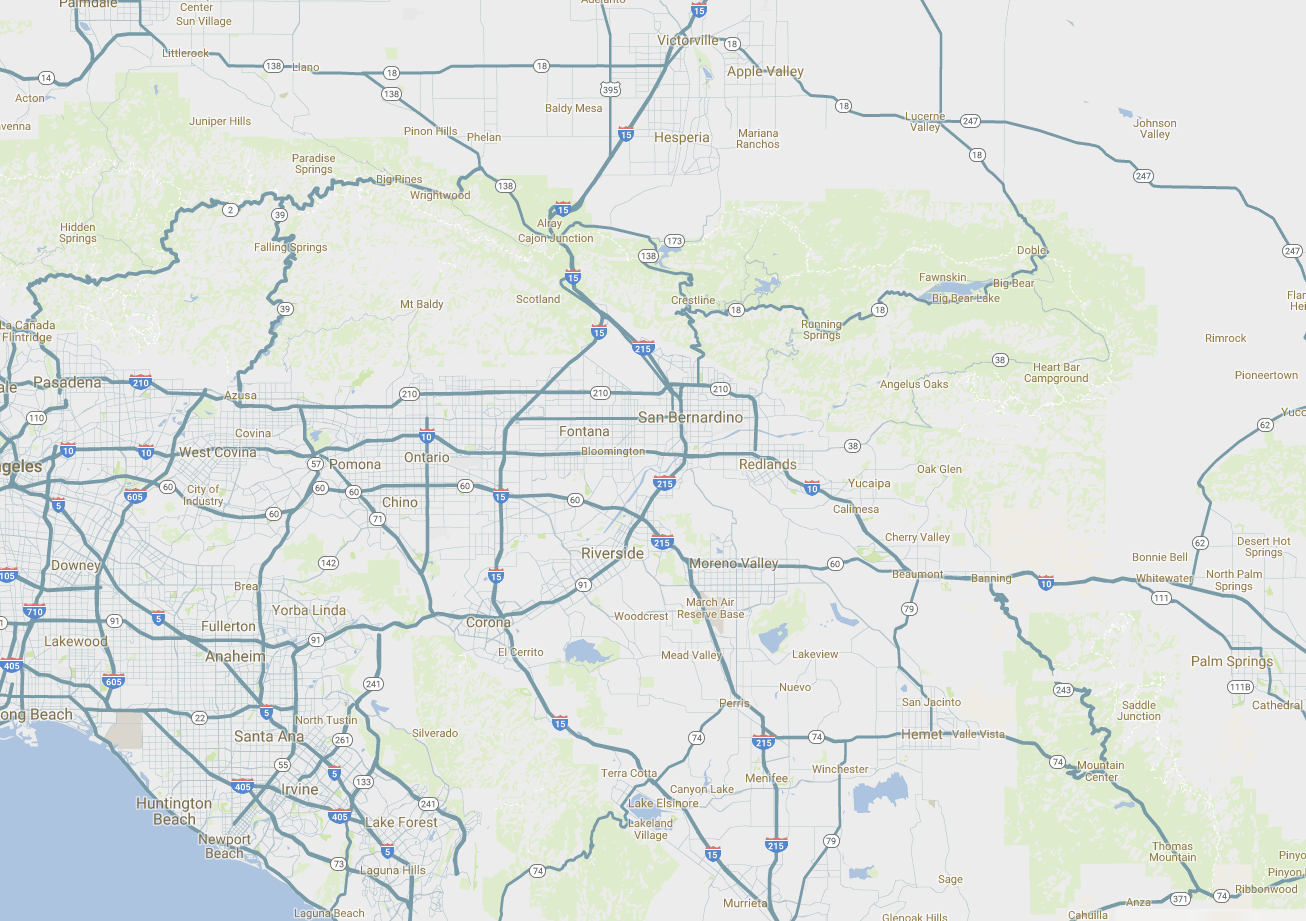Are Whole House Water Filters Worth It? Find Out Here!
Have you ever poured yourself a glass of tap water, only to hesitate as a nagging doubt creeps in about its purity? This scenario might remind some of their childhood visits to a grandparent's house, where the water tasted slightly off due to the old neighborhood's pipes. Such subtle concerns often start as a topic of family jokes but can quickly become serious worries when potential contaminants are discovered.
Water is a fundamental part of daily life. Whether it's making a beloved family recipe, washing away the day's adventures, or simply quenching a thirst, the quality of water impacts everything.
At Burgeson's, providing clean water isn't just a business—it's a legacy. As a fourth-generation family owned and operated company, we understand deeply the nuances and needs of family life. We believe that a home without good water is like a garden without sunshine.
Join us in exploring the world of whole house water filters in this educational blog. Discover their benefits, costs, and how to find the perfect system for your home. With Burgeson's, families can confidently enjoy every sip of water, knowing it's safe & pure.
What is a Whole House Water Filtration System?
What is water filtration & are water filtration systems worth it? Imagine this: It’s Saturday morning, and you’re brewing your first cup of coffee. You take a sip and notice how fresh and pure it tastes, almost like a barista prepared it just for you. The process through which you purify this water for usage is called water filtration. That’s what whole house water filters can do. It's like having a little piece of paradise right at home.
These systems purify water as it enters your home, ensuring each drop from every faucet is clean and safe. No more questioning the water quality you’re using to wash your vegetables or bathe your children and pets.
HOW DOES WHOLE HOUSE WATER FILTERS WORK?
Whole-house water filtration systems connect directly to your main water line, filtering out contaminants before the water even reaches your kitchen sink. This includes:
1. Chlorine & Chloramine: Remember those old science experiments where we learned about chlorination? Turns out, we don't need that in our drinking water.2. Sediments: Like sand and rust—let’s keep those in the sandbox, not in our water.
3. Heavy Metals: We’re talking about lead and mercury, which we certainly don’t want in our bodies.
4. Volatile Organic Compounds (VOCs): Chemical compounds that can affect our health.
5. Microorganisms: Including bacteria and viruses—because nobody wants an unwanted science project growing in their pipes.
Benefits of Water Filtration
So, what is water purification? Well, it’s a process where you remove all harmful particles, bacteria, and contaminants from it and make it drinkable. Hence, it has a lot of amazing benefits for your health. Some of these benefits are listed below;
1. Healthier Water: Provides peace of mind knowing your family is drinking safe water while also reducing plumbing issues over time.2. Better Skin & Hair: One customer recently credited her newly installed whole-house water purification system for improving her daughter’s skin condition
3. Appliance Longevity: Protects your coffee machine and dishwasher from mineral buildup
4. Consistent Quality: Enjoy the same refreshing water from every faucet in your home
WHAT IS WATER PURIFICATION - BREAKDOWN OF KEY METHODS?
Water purification isn't just about making water taste good; it’s about ensuring safety. Have you ever thought about how pure your water really is? Many of our customer’s journey into water purification begins with a simple question: "What exactly are we drinking every day?"
KEY METHODS OF PURIFICATION?
1. Filtration: A physical barrier removes particles and impurities.2. Disinfection: Using chemicals or UV light to eliminate harmful microorganisms.
3. Distillation: Boiling water and then condensing it to remove impurities.
4. Reverse Osmosis: Forcing water through a membrane to remove larger particles and ions.
WHY IT MATTERS
Safety: Helps ensure your water is free from pathogens and pollutants.Taste & Smell: Turns water from something you tolerate into something you enjoy.
Protects Appliances: Prevents buildup in pipes and appliances, reducing repair needs.
TYPES OF WHOLE HOUSE WATER FILTERS SYSTEMS
Educating oneself in water filtration systems can sometimes feel overwhelming given the many choices. Many places in the US such as California have contaminated water. However, here is detailed information to help discover the right system for you and your family. It should feel less like deciphering a foreign language and more like picking the right tool for the job.
1. ACTIVATED CARBON FILTERS
How They Work: Carbon is used to absorb contaminants like chlorine and VOCs.
Pros: Cost-effective and excellent for improving taste and odor.
Cons: Limited against heavy metals and microorganisms.
2. REVERSE OSMOSIS SYSTEMS
How They Work: A semipermeable membrane is used to filter out contaminants.
Pros: Extremely effective at removing impurities, including heavy metals and salts.
Cons: More expensive and can waste water during the process.
3. Ultraviolet (UV) Filters
How They Work: Uses UV light to kill bacteria and viruses.
Pros: Chemical-free disinfection.
Cons: Does not remove chemicals or sediments.
4. SEDIMENT FILTERS
How They Work: Specialized filters remove large particles like sand and rust.
Pros: Protects other filters and appliances.
Cons: Not effective against smaller contaminants, chemicals, or microorganisms.
5. ION EXCHANGE SYSTEMS
How They Work: Resin beads are used to exchange ions in the water, softening hard water by removing calcium and magnesium.
Pros: Effective at softening water and improving appliance efficiency.
Cons: Requires regular maintenance and salt replacement, and they are bad for the environment.
What is Reverse Osmosis Water Filtration?
Understanding Reverse Osmosis
Reverse osmosis (RO) is a highly effective water purification process that utilizes a semi-permeable membrane to eliminate ions, molecules, and larger particles from drinking water. It's renowned for being one of the most thorough methods available, capable of removing up to 99% of contaminants, ensuring that the water you consume is as pure as possible.
HOW REVERSE OSMOSIS WORKS
1. Pre-Filtration: Water first passes through a sediment filter to remove large particles like dirt and rust, setting the stage for deeper purification.2. Carbon Filtration: Next, chlorine and other chemicals that could harm the RO membrane are removed, ensuring the process can proceed effectively.
3. RO Membrane: The heart of the system, where water is forced through the membrane, leaving behind impurities and contaminants.
4. Post-Filtration: Additional filters refine the water further, enhancing taste and eliminating any remaining odors.
BENEFITS OF REVERSE OSMOSIS
1. High Purity Water: RO effectively removes a broad range of contaminants, including heavy metals and nitrates, providing peace of mind with every sip.
2. Improved Taste: Enjoy clean, fresh-tasting water that enhances the flavor of food and beverages.
3. Versatility: Ideal for drinking, cooking, and other household uses, making it a versatile addition to any home.
CONSIDERATIONS
1. Water Waste: While some water is wasted during the process, modern systems have been designed to minimize this efficiently.
2. Space Requirements: Installation typically requires space under sinks or in utility areas, so plan accordingly.
3. Maintenance: To maintain optimal performance, regular filter and membrane replacements are necessary.
PROS & CONS OF WATER FILTRATION SYSTEMS
WHY SHOULD YOU CONSIDER A WATER FILTRATION SYSTEM?
Americans are increasingly turning to bottled water for their drinking needs. In fact, the average person in the U.S. consumes about 45 gallons of bottled water per year. This reliance on bottled water can come at a high cost, financially, environmentally, and even to one's health. On average, households spend around $100 to $200 annually on bottled water alone, and that's not accounting for the environmental impact of plastic waste. Furthermore, researchers have found that bottled water can include thousands of microplastics.
A water filtration system offers a more sustainable and cost-effective solution. By investing in whole house water filters, you can have access to clean, purified water straight from your tap, reducing the dependence on bottled water and saving money in the long run.
Things to Keep in Mind
Before deciding to install a water filtration system, there are a few important considerations to keep in mind. While the benefits of having clean, filtered water at your fingertips are clear, it's essential to be aware of the potential challenges that come with it. Understanding these factors beforehand will help you make an informed decision and ensure that your system operates efficiently for years to come. Here are some key points to consider before taking the plunge:
1. Initial Investment: It requires an upfront cost, but think of it as an investment in your family’s health.
2. Maintenance: Just like your car, regular check-ups keep it running smoothly.
3. Possible Water Pressure Reduction: Although uncommon in most cases, some systems might lower water pressure if not installed correctly.
Whole House Water Filters System Cost
Investing in whole house water filters can offer long-term benefits. However, it's important to understand the costs involved, which can vary based on the type of system, installation complexity, and maintenance needs.
WHAT TO EXPECT WHEN INVESTING
1. Initial Costs
1. Activated Carbon Filters: Under-sink models range from $50 to $1,000. While whole home models range from $500 to $8,000.2. Reverse Osmosis Systems: Under-sink models cost between $150 and $1,850.
3. UV Filters: Typically used in combination with other systems, costing between $150 and $500.
4. Water Softeners/Ion Exchange Systems: Priced between $700 and $9,500, with additional costs for salt and maintenance.
2. Maintenance Expenses
1. Reverse Osmosis Filter Replacements: Typically range from $20 to $200 per year, depending on the RO system.
2. Membrane Replacements: For RO systems, membranes may need replacing every 2-5 years, costing $20 to $200 each.
3. Professional Maintenance: Annual service visits can range from $200 to $500, based on system complexity.
3. Long-Term Savings
Investing in a whole-house water filtration system can lead to significant savings over time:
1. Reduced Bottled Water Costs: Save money and help reduce plastic waste and health concerns related to ingesting microplastics by relying less on bottled water.
2. Extended Appliance Lifespan: Protects appliances from mineral build-up, reducing repair and replacement costs.
3. Health Benefits: May contribute to lower medical expenses by reducing exposure to waterborne illnesses.
How to Choose a Whole House Water Filters System?
Selecting the perfect water filtration system begins with understanding your unique needs and concerns about water quality.
EVALUATING YOUR NEEDS
1. Water Quality Testing: Start by testing your water supply to identify any contaminants that might be present. This crucial step will guide you in selecting the right system. Book here for your FREE in-home water test.
2. Prioritize Concerns: Determine which contaminants are most concerning for your family, whether it's chlorine, lead, or other impurities.
3. Usage Considerations: Consider your family's and pet's daily water consumption and any specific needs, such as cooking, bathing, or drinking.
FACTORS TO CONSIDER
1. Contaminant Type: Choose a system specifically designed to address the contaminants found in your water.
2. Budget: Think about both the initial installation costs and the long-term maintenance expenses.
3. Space and Installation: Assess the available space in your home and any necessary plumbing modifications.
4. Maintenance Needs: Understand the maintenance requirements of the system, including how often filters need to be changed.
5. Certifications: Look for systems certified by reputable organizations like NSF International to ensure they meet high standards of effectiveness.
EXPERT GUIDANCE
For personalized advice, consulting with our professional plumbers here at Burgeson's can be invaluable. Their experts can evaluate your water quality, recommend the most suitable system, and ensure proper installation and maintenance, providing peace of mind and exceptional service.
EXPERIENCE REFRESHING, GREAT-TASTING WATER
Imagine turning on any tap in your home and being greeted by clean, crisp, and refreshing water. Our whole house water filters not only improve water quality but also enhance the taste of everything, from your morning coffee to your evening tea.
Experience the transformative difference of healthy water throughout your entire home with Burgeson's whole-house water filtration systems. Contact us today for your FREE consultation and FREE in-home Water Test. Let our friendly and knowledgeable plumbers guide you in choosing and installing the perfect system for your home.
Our fourth-generation family-owned and operated home company is the name people have come to know and trust for over 75 years. We are committed to outstanding service in providing the healthy water solutions your family deserves. Be sure to check out the amazing feedback on this service given by our long-term client.












